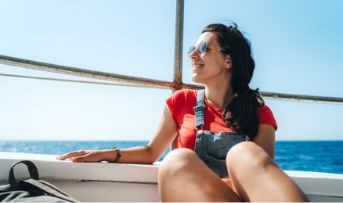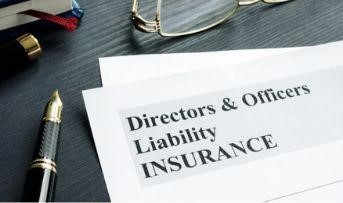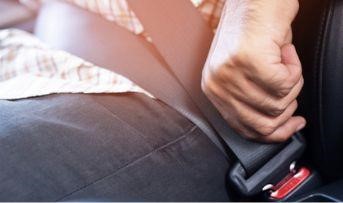General Insurance Blogs, Articles & Updates by - Magma Insurance
Have us call you
- RENEW YOUR POLICY
- BUY NEW POLICY

Are you a flashpacker? Follow these tips to make your flashpacking trips memorable
India is a diverse nation with many beautiful surroundings, sceneries, and landscapes. Due to this spellbinding canvas of experiences, it has a flourishing tourism industry to make every occasion come alive. People from far and wide visit India to witness its monuments, lakes, forts, palaces, mountains, valleys, and cultural bliss.
Many terms are going the rounds for Gen Zs and Millennials who have a zest for travelling in and around India. The words like backpacking and flashpacking are thrown around like confetti. But what exactly do they mean? More and more travellers are turning towards flashpacking with time. If you're also one of them, this article is for you.
Amidst all this, you must have personal accident insurance India to help you stay secure and safe when you travel to explore new destinations and discover rare experiences.
What is flashpacking?
Flashpacking is one of the most travel-related terms in fashion and making the news right now. You may be familiar with backpacking which deals with travelling to far and wide places on a budget. It is usually done solo to explore more areas of the country. Backpackers mostly stay at hostels and enjoy the local street food. Everything is done keeping a tight budget in mind.
On the other hand, flashpacking is described as backpacking on a better budget. It refers to solo or independent travellers with more money to spare on their travels. Unlike backpackers, this expenditure is spent on the best food chains and boutique hotels. They want to explore every nook and corner of the country with added luxury and comfort.
What are the pros of flashpacking in India?
There are a variety of advantages of flashpacking in India. Since you will not have a tight budget to adhere to, you can enjoy it to the fullest. Some of the widely known advantages are:
● You can stay at the best, most comfortable, and luxurious hotels that offer magnificent views. For instance, if you're in Udaipur, you can book a hotel overlooking Lake Pichola.
● You will get a peaceful sleep in your comfortable bed. You will not share a room or stay in the dormitory, which can disrupt your sleep and cause other distractions while you try to enjoy your solitude.
● Since you'll be exploring the best food joints in the place, you'll never sleep on an empty stomach. Further, the options are deemed to be delicious as there is no shortage of funds.
● You can also travel comfortably in cabs or motorbikes without having to hitchhike or wait for your next ride.
Tips to make flashpacking trips memorable:
There are many tips and tricks that you can consider while flashpacking as an independent tourist in India. These are:
● Make sure you research and plan before embarking on your flashpacking trip to India. You can consult a travel agent or company that has enough resources for the same.
● Book your flight or train tickets in advance to avoid problems later.
● Do not force too many places in a single day. With no budget limitation, you can prolong your trip as long as you want without any worries.
● Ensure that you have enough information about the entry time, fees, and mode of travel for a particular place you want to go to.
● Carry all the essentials like medications, sunscreen, masks, sanitiser, snacks, and so on.
● Book the best hotels with a view well in advance, so you do not have to worry about having a luxurious stay.
● Choose the best and most well-researched places to stay in the city.
You should consider many things before you plan a flashpacking trip in India. You should take all the necessary precautions and also have personal accident insurance India to cover the medical expenses in case of emergency. India welcomes several once-in-a-lifetime experiences and moments you can cherish by setting out on tours to the country's diverse retreats.
Click HERE to buy personal accident insurance India.
Disclaimer: The information provided above is for illustrative purposes only. To get more details, please refer to policy wordings and prospectus before purchasing a policy.

Effective tips to avoid panic if your bike breaks down far from home
Your bike is probably your favourite asset. Everything from grocery runs to those weekend trips; your bike is always at your beck and call. But what if someday, your bike breaks down in the middle of nowhere? What will you do? Your bike could break down for various reasons such as your battery dying, punctured tyre, malfunctioning brakes, etc.
A vehicle breakdown can be one of the most panic-inducing situations, and keeping your mind together to find a solution becomes challenging. Not only does it leave you stranded, but it also compromises your safety and makes you more susceptible to mugging and robbery.
Let's discuss a few things you need to do in case of a bike breakdown and how to avoid panic and confusion.
1. Move to a safe location:
Your vehicle generally gives you signs of breakdown way before it happens. Driving towards a safe spot is best if you feel like your bike might give up soon. Bus stops, supermarkets, and petrol pumps are some examples of safe spots that you can opt for. If your vehicle has already died out on you, you might have to push the vehicle further.
The main idea behind locating a safe location is to ensure your safety. You have to stay away from traffic to avoid a collision. You can also call your mechanic or service provider for immediate assistance once you are away from the road.
2. Secure the bike:
After reaching a safe spot, shut the engine off. If you can understand the issue, you can take the necessary action. However, if you don't know the problem, keeping a safe distance from your bike is best. However, stay close enough to have a clear view of the bike. Remember to keep your RC, driving licence, and all the other essential documents handy with you at all times.
3. Stay visible:
It is best to keep yourself visible to other pedestrians and commuters if a breakdown happens at night. Use blinkers or hazard lights. Whenever riding at night, it is best to wear high-visibility jackets. Use anything readily available around you, such as signs or cloth, to use as flags or signals for others.
4. Tools and repairs:
A repair kit comes extremely handy in case of a tyre puncture, dead battery, or failed brake system. Learn to use tools so that you can fix the basic issues that your bike might be facing. Fixing a tyre, jumpstarting a bike in case of a dead battery, etc., are skills that will be helpful in situations like these.
5. Invest in two-wheeler insurance:
The breakdown is one of the situations that help us understand the true value of insurance policies. Before embarking on trips, ensure to buy two wheeler insurance online India and regularly keep it up-to-date. Look for options that give you roadside assistance.
Under this cover, your insurance provider is bound to bring help to you wherever you are and help with the repair and movement of the vehicle from the site to the service centre. Getting roadside assistance strengthens your overall insurance policy and safeguards you against situations like these.
These were a list of all things you need to do if your bike breaks down in the middle of a road. As mentioned, it is imperative to keep yourself away from traffic and call for help as soon as possible. Talk to your insurance provider to understand the next steps that need to be taken and ensure the validity of your two wheeler insurance online India. With these things in mind, you can avoid panic and keep yourself and your bike safe.
Click HERE to buy two wheeler insurance online India.
Disclaimer: The information provided above is for illustrative purposes only. To get more details, please refer to policy wordings and prospectus before purchasing a policy.

Complete guide on Directors and Officers liability insurance
Directors and officers of a company are vulnerable to being sued by several disgruntled entities, such as shareholders, employees, vendors, creditors, investors, etc., due to wrongful acts or misdeeds while managing the company. Directors and Officers (D & O) liability insurance protect against such lawsuits. The legal environment is complex, and such insurance helps to cover the high cost of lawsuits.
The policy protects the personal assets of the Directors and their spouses. It also protects the company by covering the legal fees, settlement costs, and any other costs that the company might incur while defending the lawsuit.
Reason for suing:
The directors and officers can be sued for several reasons while performing their company duties. Some of the common reasons are:
● Misuse of company assets and funds
● Misrepresentation
● Financial loss to a stakeholder due to a breach of fiduciary duty
● Errors in reporting
● Violation or theft of Intellectual Property Rights
● Lack of corporate governance
● Poaching of customers/ employees of the competitor
What acts are not covered under the policy?
Such policies generally do not cover acts of fraud, criminal activities, and illegal profits made by the directors and officers while performing their duty and acting on behalf of the company.
The process:
An unhappy person or company may decide to sue the director or officer of the company in court if they fail to perform their duty. This will generally happen when someone suffers losses due to their conduct or action.
The company's manager and legal/ risk department will be informed of the case, which they will forward to the insurer. The insurer will cover the claim if it meets all the terms and conditions of coverage. The defence costs, as well as the financial losses, will also be covered if they lose the case.
Exceptions:
The insurer will deny settling the claim if the company does not disclose material information or provides inaccurate facts.
Most of such policies contain a clause known as 'insured vs. insured exclusion'. Under this clause, the insurer will not settle a claim if the directors and officers sue the company. This ensures that the company cannot profit from deceit or conspiracy.
Coverage:
A Directors and Officers liability insurance policy protects the personal assets of the directors and officers in case a stakeholder or a third party sues them. Their company may not be in a position to indemnify them if the claim amount is big and it does not have the required resources. In such a situation, the insurer will pay the litigation costs and protect the personal assets of those involved.
The insurer will reimburse the company for the legal costs if it has already granted indemnification to its director or officer. Such a policy provides coverage to the company, too, in case it is sued.
These policies usually cover the company's present, past, and future directors, managers, and officers.
The dilemmas:
This is a typical type of insurance coverage and generally comes with a long list of terms and conditions. Hence, it brings with it a lot of questions and dilemmas for the buyer. The company has to decide how much should be on the cover, what deeds of its employees are included under the cover and what is excluded, whether it is a good option for a Small-to-medium sized company (SME), etc.
A Directors and Officers liability insurance policy has become very common with big multinationals in India. Every sector is opening up to such policies- public, private, or not-for-profit. This is why public liability insurance India is gaining importance. Policies are being tailored for small and medium enterprises as well because of their huge number in India.
The cost of litigation is very high, and one court case can cripple an organisation's financial resources. However, the penetration is still low at present, and a huge potential exists in this sector.
Click HERE to buy public liability insurance India.
Disclaimer: The information provided above is for illustrative purposes only. To get more details, please refer to policy wordings and prospectus before purchasing a policy.

Here are ten interesting facts about cars that will amaze you
Have you ever wondered what an astounding invention your automobile is? How smoothly it moves across the roads and takes a U-turn with grace is truly mesmerising. Let’s unravel some interesting facts about cars that you might have heard or might be learning for the first time.
1. Do you know about 1 billion cars are plying on the roads currently? This number is only expected to double in the next 20 years, with the increasing usage of vehicles on the street. That means, if you get out of your house at any given point of the day, you are sure to spot at least 100 cars in 10 minutes hurtling down the roads going on with their busy days.
2. Have you seen those old cartoons where a car runs upside down at unbelievable speeds? Well, it’s not unbelievable anymore! This reality has been achieved by supercars and Formula 1 cars with modern technology. Theoretically, a formula 1 car could easily be driven upside down at high speeds.
While experimenting with this remarkable phenomenon, the critical calculation is the optimum speed required to produce enough traction with the road surface, so you don’t fall off due to gravity. You might have to maintain a speed of 130 miles per hour, or you could go right back down!
3. Most people have a fear of travelling by planes. The dire news flashes about the various plane crashes and the massive casualties do not help. But it’s shocking to note that the probability of getting killed in a plane crash is much lower than in a car accident. The odds of dying in a plane crash is 1 in 11 million, which is ludicrous compared to the 1 in 5000 in car crashes.
4. Do you sometimes imagine being an astronaut, going on the moon, and spacewalking to your heart’s desire? It is a far-fetched dream for most, but an interesting fact is that if you could ignore all the rules of physics for a month and drive a reasonable 100 km per hour, you would cover the distance to the moon in your sweet ride.
5. For those who have a hard time staying under the speed limit and crave a little thrill while driving, the first speeding ticket was issued in 1902 to a person driving at a scandalous speed of 70 km per hour.
6. A heartwarming fact for nature activists is that nearly 80 per cent of an average car is recyclable. This means that there is significantly less plastic waste generated by the automobile industry, as automotive recycling is one of the biggest industries in the world at the moment.
7. It seems ridiculous that people once used to have horse carriages instead of cars. What is even more interesting to note, however, is the fact that cars have evolved from horse carriages. For instance, a dashboard in the olden times would prevent the driver from getting muddy by the horse’s trotting!
8. Ethanol, used as car fuel, is made directly from sugarcane.
9. How often have you been frustrated about your car breaking down in the middle of the road? It seems almost understandable when you know that a car has nearly 30000 unique parts! It’s a miracle it doesn’t break down more often. So, it is undoubtedly best to research and buy car insurance online to stay stress-free about your vehicle.
10. A woman by the name of Mary Anderson invented the windshield wipers in 1902 and was soon granted a patent.
For many, the car is simply a means of commuting. But for car enthusiasts, their car means much more and is nothing less than a family member. But with the constant hustle and bustle of city life, it becomes tough to maintain your car as it’s supposed to. Regular servicing and maintenance are required to keep your car in the best shape.
Insurance is the best way to manage your finances efficiently, from ensuring the fitness of each mechanical part to the overall appeal of the car. Switch to digital transactions and buy car insurance online to avoid a hole in your wallet due to these expenses. You just need to regularly check your insurance policy and keep it up-to-date to prevent the policy from getting terminated.
Click HERE to buy car insurance online.
Disclaimer: The information provided above is for illustrative purposes only. To get more details, please refer to policy wordings and prospectus before purchasing a policy.

Here are the ways you can identify a broken nose and perform aftercare
With a significant emphasis on laborious work that yields marginal returns, there is no alternative to physical effort. As the intense nature of work causes accidents routinely, and the risk of mishaps continues, making personal accident insurance India is a necessary investment.
One of our body’s most overlooked and fragile parts is the nose. It directly impacts the facial structure and looks of a person. It is a very delicate structure made of two bones that can snap for multiple reasons, resulting in a broken nose. Identifying a broken nose is crucial at the earliest to providing proper medical attention and effectively performing aftercare.
Read on to learn about identifying a fractured nose, precautions, and best aftercare tips!
Causes for a broken nose:
It is essential to know its formation to understand the causes of a fractured nose. The two bones in your nose are located at the bridge where your sunglasses rest. They make the base of the structure and space for cartilage. Technically, the cartilage cannot break since it is flexible, which implies that a broken nose refers to a fractured nose bridge.
A broken nose bridge can be a result of various factors, including but not limited to the following:
● Sport injuries
● Automobile accidents
● Physical violence
● Slamming the face into inflexible objects
● Falling face first
Signs of a nasal fracture:
The nose has a significant impact on the look of your face. Therefore, a broken nose is quite easily identifiable. However, here are some signs that determine if your nose is broken:
● Shooting pain from the nose
● Bruising at the nose and under the eyes
● Slight crookedness of the nose when compared to its regular structure
● Sudden nosebleeds and mucus discharge
● Difficulty in breathing from either or both nostrils
It is best to get your nose checked, even if you do not notice any visible signs.
Can it be treated at home?
It is recommended to rush to the hospital to address the injury immediately. Waiting for the bleeding or discomfort to stop further complicates the issue. Do not consider solving the problem at home. Seek a medical professional’s attention immediately. Usually, personal accident insurance India covers the medical costs of the injury.
Medical procedure:
Depending on the severity of the issue, you may have to undergo a CT scan or an X-ray. A hairline fracture can be treated using some ice and painkillers. You may require surgery to realign the bones and antibiotics for severe issues. At the most, it should take two to three weeks for your nose to heal.
Aftercare:
Once the medical professionals have assessed the situation and taken appropriate steps to stop the pain, bleeding, or discomfort, it is vital to follow proper steps to make the treatment effective and heal your nose.
● Icing is recommended to soothe the pain, especially immediately after the injury. A cold compress using ice wrapped up in cloth is the easiest way to tend to the pain.
● If prescribed, make use of painkillers. However, do not act without the doctor’s approval and ask for medicines instead of self-diagnosing painkillers.
● Keep your head tilted up as much as possible. Avoid pressure on the nose caused by sleeping sideways or on your stomach.
● Avoid strenuous activities that can break your nose again until your nose heals.
A broken nose can be a painful accident to deal with. While there are no ways to prevent accidents, buying personal accident insurance India can help reduce the burden on you. Avoid distractions while doing a task that requires more focus. Be cautious always and prioritise your safety.
Click HERE to purchase reliable personal accident insurance India.
Disclaimer: The information provided above is for illustrative purposes only. To get more details, please refer to policy wordings and prospectus before purchasing a policy.

How can you obtain a duplicate two-wheeler insurance in case you lost your original
Your insurance for a two-wheeler is an essential document without which you should not risk travelling. The Motor Vehicle Act mandates the importance of carrying your insurance papers. These documents provide information about the rider, including your two-wheeler's registration number and your purchased insurance policy.
The policy documents contain all the essential information required to identify your vehicle, its legality status, the rider's identity, the dealership, your insurance provider, and much more. This information portrays the rider as a responsible citizen who would abide by the safety protocols on the road and, therefore, can be entrusted to drive around without causing any trouble.
There is always a possibility for human error. In this case, what if you end up losing your insurance policy documents? So, how do you solve this problem, and how can you obtain a duplicate 2 wheeler insurance if you lost your original? This blog will answer all your questions and provide you with better information so that you can stay informed and know what to do in case you end up in a similar situation.
1. Lodge a complaint:
For a policy which is bought offline, your first step in obtaining a duplicate two-wheeler insurance will be to file a complaint. Visit your nearest police station and ask them to file an FIR about your missing insurance documents.
You will need to give them essential information like your policy number, your insurance provider, description of the vehicle, the type of policy, details about add-on coverage options if you opted for any, and your personal information like name, job role, contact number, etc. This document will then be verified and attested saying that you lost your insurance and will be sent to your insurance provider claiming the same.
2. Apply for the duplicate insurance documents:
Now that you have a copy of the registered FIR supporting the loss of your insurance documents, you need to apply for a duplicate copy of your 2 wheeler insurance. You will be required to draft an application letter claiming your missing insurance documents and how you would like to request a duplicate set of the documents for future purposes.
Make sure you attach the FIR and your application to support your case. If your insurance policy is a joint one, both policyholders must sign the letter, which will be submitted to your insurance company.
3. For the formal request:
You must sign an indemnity bond stating that you would like to make a formal request to get a duplicate set of your insurance documents. The indemnity bond is to be signed on a non-judicial stamp paper.
Details like your name, the joint policyholder's name (in case of a joint policy), policy number, etc., are mentioned on the indemnity bond. Apart from this process, the bond requires signatures from two witnesses who should not be a part of your family. The insurance company might ask you for proof of your financial standing.
4. Newspaper advertisement:
Another step you can include (if required) in this process is publishing an advertisement in the newspapers mentioning the loss of your documents, the insurance provider's name, and other required details for identification. Make sure to submit the copy of advertisement to your insurance company. Submit all the supporting documents mentioned above, and the organisation will give you a duplicate set of your insurance documents after their verification process.
Obtain your car insurance copy online:
As against the tedious offline method, you can also get your duplicate car insurance policy online by sitting at home. This is possible only if the policy is bought online. To get this;
• Visit the website of your car insurance provider
• Login to your account by putting your account details, policy number, name, age, phone number, etc.
• Go to the policy download option
• You will receive the policy document through email to your registered email address
• Download the car insurance policy document and keep the digital or printed copy along with your other car documents.
Protecting your vehicles with a reliable insurance policy is paramount for their safety. Mishaps can sometimes severely impact your two-wheeler. Getting the best 2 wheeler insurance that suits your needs will help you stay stress-free regarding your financial worries in such emergencies. Your insurance provider will undertake the expenses required for your two-wheeler's repair and maintenance work.
Click HERE to know more about the benefits of 2 wheeler insurance.
Disclaimer: The information provided above is for illustrative purposes only. To get more details, please refer to policy wordings and prospectus before purchasing a policy.

Do the motor insurance policies cover the damage to passengers not wearing seatbelts
Drivers and front-seat passengers must wear a seatbelt when the vehicle is running according to the Central Motor Vehicles Rules (CMVR). Not complying with this rule can lead to a fine of 1000 INR. Surpassing the fine should not be the motive for wearing a seatbelt. Other than the fine, it can be a big life saviour in times of an accident. There is also a rule that the passengers in the rear seat should wear a seatbelt. But, as per the reports, most passengers avoid wearing a seatbelt in a running car.
It is crucial to understand that it just takes a few seconds to buckle the seat belt, which can protect you and your passengers from severe bodily damage in case of an accident. Also, as per a poll, wearing a seatbelt by a co-passenger had shown a reduced risk of being heavily injured or killed by 25% and 75%, respectively. Not just this, did you know that your motor insurance company can reject your claim if it finds that you weren’t wearing a seat belt at the time of the accident?
Let us go through the details of the coverage of damages under motor insurance policies to passengers not wearing seatbelt.
1. Not wearing a seatbelt:
Technically speaking, if you are driving without wearing a seatbelt and you meet with an accident, the insurance company should not be liable to pay for any damages. One can argue that the person could have been saved or suffered much lesser damages during the accident if he had been wearing the seatbelt.
2. Lower compensation:
The main motive of all insurance companies is to make profits. Hence, if they find out that either the front-seat passenger or even the rear-seat passenger was not wearing a seatbelt, they may approach insurance tribunals and file a contributory negligence plea against the insured to lower the compensation or reject it fully.
The courts or the tribunal can lower the compensation claim to some extent. The claim is not rejected just because the insured was not wearing a seatbelt during the mishap. However, lowering the claims is possible since it is a form of non-compliance.
3. Personal accident cover:
Under the motor vehicle act, an individual must take a personal accident cover along with vehicle insurance. It also applies to third-party insurance. Even if the passenger is not wearing a seatbelt, the personal accident cover will pay for the compensation in case of death, injury, or permanent disability due to the accident.
By buying a passenger add-on cover, you can buy similar coverage for up to three co-passengers sitting in your car. This will cost you some extra premium but will provide effective cover to all the passengers in the vehicle.
Driving your vehicle without wearing the seatbelt puts a lot of lives in danger, be it you, your co-passengers, or the vehicle or person with which you have met with the accident. Passengers in the front seat and the rear seat must follow the rule of wearing seatbelts and save penalties and lives.
This is why even the Government of India has announced that it will soon be mandatory for passengers sitting in the back seat to wear the seatbelt when the vehicle is in motion. Even the motor insurance company cannot reduce your insurance claims if you start following this.
There are no shortcuts to safety, and negligence can cost you not just money but even life! Press the accelerator only when your seatbelts are on, drive under the speed limit, follow traffic rules, avoid lane cutting, and make optimum use of all safety equipment installed in your car.
Click HERE to buy insurance from the best motor insurance company.
Disclaimer: The information provided above is for illustrative purposes only. To get more details, please refer to policy wordings and prospectus before purchasing a policy.

Here are the easy and effective ways to master clutch control of a car
Mastering the clutch can be challenging for somebody who has just started learning to drive a car. When to press the clutch, when to let go, and what to do on a slope are only some of the many clutch-related questions we face every day as a beginner. But as somebody rightfully said, practice makes it perfect.
The more you practice, the better you handle the accelerator and learn to sync with the vehicle's clutch. However, you can do a few things to improve your driving experience and better understand your car's clutch system.
This article will look at all the simple tips and tricks you can follow to master the clutch and become an expert driver in no time.
1. Adjust your driving environment:
When practising your driving skills, it is essential to ensure the safety of yourself and others. Choose an empty field or road to practice your driving manoeuvres. Ensure that nobody is around you and your car for a considerable distance.
Wear your seat belt tightly and adjust your seat to get a comfortable driving posture. Your seat adjustment is key to good driving. If you have to strain your legs to reach the pedals or if you have to cramp your legs into position, then it will affect your driving adversely.
2. When you start the engine:
One of the main issues faced by new learners is starting the car. It is natural for the car to sputter or jerk when starting as a beginner. Talk to an instructor and learn how to manoeuvre the clutch and the accelerator. Once you turn on the ignition, depress the clutch fully and put your car in the first gear.
Now, slowly release the clutch and accelerate the pedals. A rule of thumb is that the accelerator and clutch are complimentary pedals. The more stress you put on the clutch, the lesser power you give to the accelerator. Repeat this step for few times to get a command over bite point of clutch.
3. Manoeuvring the slopes and hills:
One of the new drivers' biggest fears is taking the car up a hill. While it might seem like an intimidating task, with practice, you can master conquering any hill. While climbing a steep slope ridden with traffic, you must keep two things in mind. First, your car needs maximum energy to climb the hill.
Second, you cannot accelerate the car because you always risk crashing into another vehicle. In a situation like this, you must constantly alternate between controlling the clutch and handling the speed. Dip the clutch constantly to keep the car moving slowly, but if you feel like your vehicle is going to stop and recede, raise the pedal to give it some speed.
4. Conquer the fear:
While this is seemingly obvious, most people quit driving because of fear. Improper clutch handling brings the fear of accidents due to wrong coordination. It may also result in quicker wear and tear and might need replacement before time. But if you are covered by good car insurance, you can rest assured that all the expenses will be taken care of by your insurance provider.
Give yourself and your car as much time as needed to understand the vehicle's functionalities better. Most importantly, do not compare your learning speed with others because what matters is that you are keeping yourself and others on the road safe.
These are a list of a few things that you need to remember when handling clutch. As mentioned above, insure cars with affordable yet efficient insurance companies. With the new car insurance rates in the market, there are many options to choose from.
Click HERE to know new car insurance rates in India.
Disclaimer: The information provided above is for illustrative purposes only. To get more details, please refer to policy wordings and prospectus before purchasing a policy.

